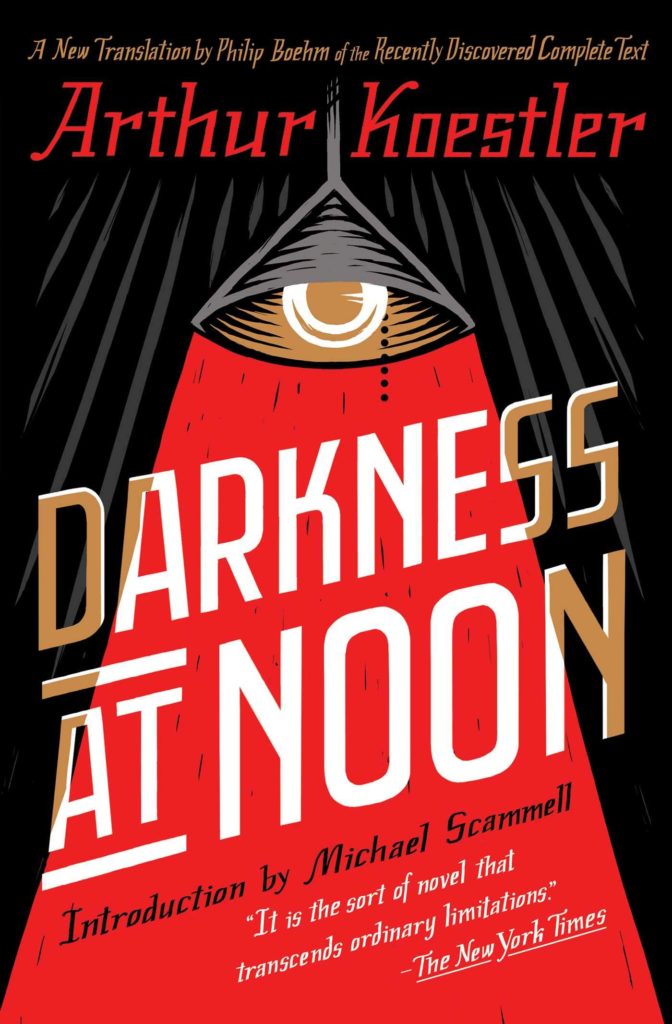
Wednesday
In 1984 I was on a faculty panel discussing George Orwell’s famous novel. At the time I was critical, describing it as a paranoid scream and confidently asserting that it had little relevance for those of us living in liberal democratic societies. I assumed that our system of checks and balances and our commitment to the rule of law would protect us from Big Brother.
In short, I underestimated Orwell.
Mother Jones’s David Corn is the latest to turn to 1984 to describe recent political developments. His target is the Attorney General for overriding his own Inspector General:
Following the release of the Justice Department inspector general’s report on the origins and management of the Trump-Russia investigation, Attorney General William Barr went into full Oceania war-is-peace mode to erase truth in order to protect and soothe his dear leader, Donald Trump. Moments after the report appeared—it concludes the FBI had been right to open an investigation of interactions between Trump associates and Russia in 2016, as Moscow was attacking the US election to help Trump win the White House—Barr challenged the findings. He declared that he knew better than the IG and that the FBI had launched the probe “on the thinnest of suspicions that, in my view, were insufficient to justify the steps taken.” Barr noted that his own hand-picked federal prosecutor, John Durham, would be conducting a separate review and have the final word. And the next day, Barr continued his brazen campaign of disinformation. In an interview with NBC News, he called the FBI investigation “completely baseless.” Barr depicted the probe as a “danger” to civil liberties and the American political system. He was twisting up into down.
Barr shows how our problems extend beyond Trump to large swathes of the Republican Party. In their readiness to repeat Trump’s lies rather than acknowledge what’s really happening, they remind me of the protagonist of the novel that most influenced 1984: Arthur Koestler’s Darkness at Noon.
Koestler was a German communist who, disillusioned by Stalin, left the party in 1938. The 1940 novel records the final days of Rubashov, a one-time revolutionary hero who is imprisoned by No. 1’s secret police for questioning party orders. No. 1, like Big Brother, is modeled on Stalin.
Like Rubashov, those Republicans guilty of independent thought pay a price. Rep. Justin Amash, although a reliable rightwing vote, was drummed out of the party after concluding from the Mueller Report that Trump had engaged in impeachable conduct. How today’s GOP enforces party discipline is brilliantly laid out in a Tim Alberta Politico article.
It so happens that Rubashov himself once did the bidding of the party bosses. In one painful scene, he informs 19-year-old Richard that he will be expelled because he has not been repeating the Party’s empty talking points. Richard, who speaks with a stutter, explains the situation on the ground made it necessary. For Rubashov, however, loyalty trumps everything:
“But you did not distribute our material; it is not even mentioned in your report. Instead, you circulated the material made by yourselves—without the control or approval of the Party.”
“B-but we had to,” Richard brought out with a great effort…”The t-tone of your propaganda material was wrong…”
After an interruption, the conversation continues:
“We must come to a conclusion,” said Rubashov. “If I understand you rightly, you said that you purposely did not distribute our material because you did not agree with its contents. But neither did we agree with the contents of your leaflets. You will understand, comrade, that certain consequences must come of that.”
Richard turned his reddened eyes towards him. Then he lowered his head. “You know yourself that the material you sent was full of nonsense,” he said in a flat voice. He had suddenly stopped stammering.
“Of that I know nothing,” said Rubashov drily.
Their conversation ends badly:
“Comrade— b-but you couldn’t d-denounce me, comrade. . .,” said Richard…[H]e had caught the sleeve of Rubashov’ s overcoat and was talking straight down into his face; Rubashov felt his breath and a slight dampness sprayed on to his forehead.“I am not an enemy of the Party,” said Richard. “You c-can’t throw me to the wolves, c-comrade. . . .”
That, in fact, is what Rubashov does, turning him over to the Secret Police.
Many Republicans know their talking points are nonsense, especially that Ukraine rather than Russia attacked our 2016 election. They also know they will be thrown to the wolves if they deviate from the party line. Therefore they either lie openly or lie in their silence acquiescence.
As the book opens, Rubashov finds himself in Richard’s place, awaiting execution, and an old Czarist army officer in the adjoining cell tells him it serves him right. We could say that it also serves former Trump loyalists like Michael Cohen, Paul Manafort, and Michael Flynn right that they are in prison or headed for it. Unfortunately, as in the novel, No. 1 remains in power and untouched.

